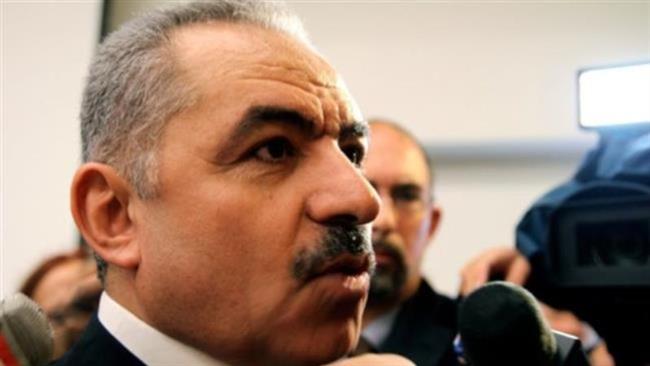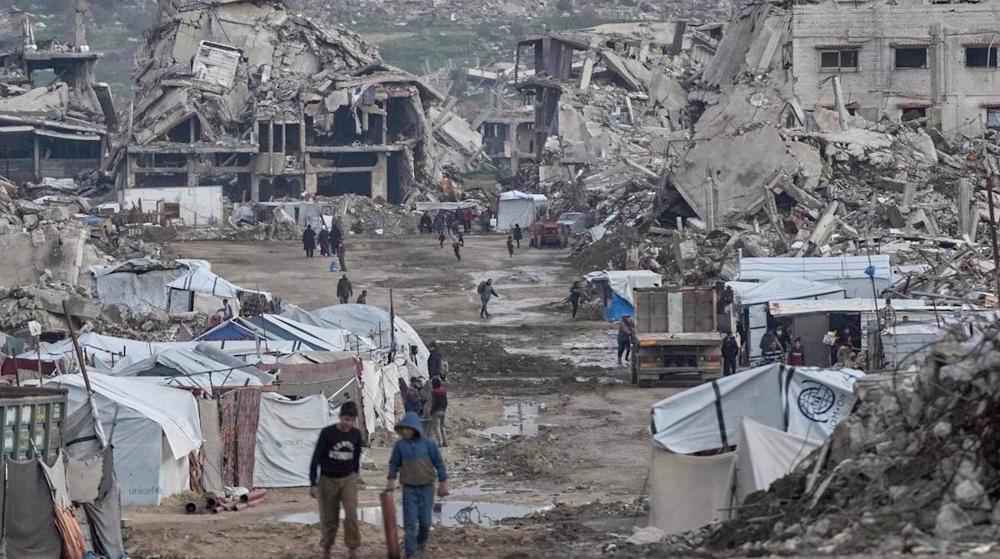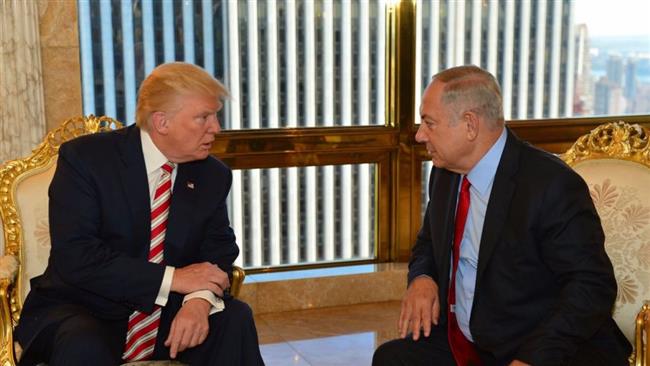Palestinians move against Trump's US embassy transfer
Palestinian leaders have called for Muslim and Christian worshipers across the Middle East to protest against plans by US President-elect Donald Trump to transfer the American embassy in Israel to occupied Jerusalem al-Quds.
Mohammad Shtayyeh, a senior Palestinian official and Fatah central committee member, called for prayers at mosques throughout the Middle East on Friday as well as for churches to ring their bells in protest on Sunday.
"I think and we all think that moving the embassy to Jerusalem is a dangerous step that will have dangerous consequences for the political track for our people and for our future aspirations and for the Muslim, Arab, Christian countries and people all over the world," Shtayyeh told journalists in the West Bank city of Ramallah on Tuesday.
"We are not inciting violence. Ringing a church bell... is not a violent act. Calling for a prayer is not a violent act."
Shtayyeh, who was speaking on behalf of the Palestinian leadership, said doing so would mean an "end to the two-state solution."
The Palestinian leadership had been informed by diplomatic contacts that Trump could call for the move in his inauguration speech on January 20, Shtayyeh said.
Elsewhere in his remarks, Shtayyeh said Palestinian leaders were considering whether to withdraw their recognition of Israel if Trump went ahead with the plan.
President of the Palestinian Authority Mahmoud Abbas has already written to Trump, urging him not to move the embassy while also calling it a "red line" that could jeopardize the so-called peace prospects.

In early December, US President Barack Obama renewed a presidential waiver ordering the US embassy in Israel to remain in Tel Aviv, despite pressure by Congress and Israel not to do so.
In September 2016, Trump, who was the Republican presidential nominee at the time, had promised Israeli Prime Minister Benjamin Netanyahu that he would "recognize Jerusalem [al-Quds] as the undivided capital of the state of Israel" if he emerged victorious in November presidential election.
Palestinians are seeking to create an independent state in the territories of the West Bank, East Jerusalem al-Quds and the Gaza Strip, with East al-Quds as its capital.
Over 230 illegal settlements have been constructed since the 1967 Israeli occupation of the Palestinian territories. The unauthorized structures have hampered attempts to establish peace in the Middle East.
In November 2012, the United Nations General Assembly voted to upgrade Palestine’s status from "non-member observer entity" to "non-member observer state" despite strong opposition from Israel.
Palestine’s flag was hoisted for the first time at the UN Headquarters in New York in September 2015.
Diagnosing the roots of Iran’s economic turmoil
VIDEO | Press TV's news headlines
Son of Iran’s deposed Shah urges US, Israel to bomb country after failed ‘regime change’ plot
Jan. 12, 2026 – the day Iranians again rallied to reject hostile plots against Islamic Republic
IRGC intelligence dismantles MKO, monarchist terror cells in NE Iran
‘Permits of humiliation’: Israel targets Christian schools in al-Quds
Over 470 terrorists, riot ringleaders captured across Iran
UNRWA chief warns about 'record highs' of diseases in Gaza amid Israeli siege













 This makes it easy to access the Press TV website
This makes it easy to access the Press TV website